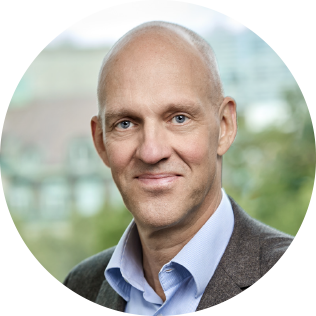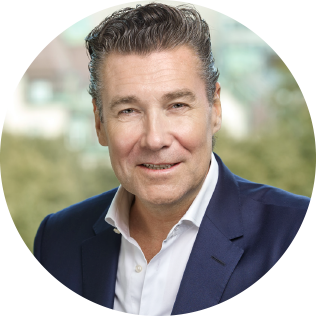2024-05-24
Greening pensions with AP7
This year, our team recieved commitment for Alder’s Fund III, with significant investor interest in our sustainability-focused strategy. One investor, AP7, has supported Alder from the beginning, investing in all three funds. As a Swedish government agency overseeing premium pension funds, AP7 has investments in over 3,000 companies globally, prioritising capital for ESG solutions. We spoke with AP7’s Johan Florén, Chief ESG & Communication Officer, and Per Olofsson, Deputy CIO and Head of Alternatives, to gain insight into their commitment to financing the green transition.

Johan Florén

Per Olofsson
Can you tell us about the background of AP7’s focus on sustainable investments and how you started working with Alder?
PO: Public equity markets have led the charge in sustainability, while private equity, our realm, took a bit longer to catch up. But in 2007, we decided to allocate a portion of our capital to what was then called “cleantech”. Not long after, we connected with Alder who was raising capital for their first fund. The industry didn’t use terms like ESG as much then, and impact measures were pretty underdeveloped. A lot has changed, but even then, we recognised the significance of investing in companies tackling environmental issues.
How do you stay ahead and relevant in terms of innovative investments?
JF: Sustainable finance is in a state of constant and rapid change, and the competition is fierce, which makes it hard to remain unique. Staying ahead demands continuous effort and a proactive and adaptive approach – it requires an organisation and management team that’s on board for constant evolution. You also need to be curious and good at filtering and absorbing information about new technologies, regulations and breakthroughs.
And how do you see AP7’s role, or the financial sector’s in general, in the green transition?
JF: We know that if we want to be part of the solution, ownership is the key. We focus on supporting smaller, innovative enterprises in their growth phase, providing the continuous capital they need to scale. Our selection criteria prioritise companies with significant sustainability impact and we actively contribute to their journey towards maturity and addressing global challenges. This unique opportunity isn’t feasible in the listed market, where investors merely trade stocks.
PO: To add to that, our role is to put pressure on companies that are lagging in their sustainability progress. While challenging to measure, pushing the transition model forward with companies lacking a specific climate focus could have a substantial impact as they raise their standards. However, this commitment must come from within the organisation, embraced by top management and boards, and integrated into the overall business strategy. External pressure, whether from us or others, is insufficient without internal commitment.
What is your process for ensuring that you invest in impactful companies and where do you draw the line for blacklisting sectors or companies?
PO: The AP7 method, which we’ve had since the fund launched, uses a norms-based screening built on the UN Global Compact principles of human rights, environment, labour rights and anti-corruption. We apply it to all our assets, impact investment or otherwise. When we started investing in impact prospects, the bar for goals like net zero was still quite low, but as companies have become more ambitious, we have increased our requirements correspondingly. Of course, we draw a line for companies we can’t invest in if they don’t meet our standards. But you can’t take that decision lightly because if you strike off too many sectors, you lose the ability to influence what’s going on. So it’s a final step that we consider carefully.
JF: In terms of our focus, we’ve been working with the climate transition for several years, and now we are also engaged in the TNFD – the Task Force for Nature-related Financial Disclosure. So, our efforts are moving more into biodiversity and ecosystem preservation.
Many new standards and regulations are coming up now, particularly regarding financing the green transition, with the EU Taxonomy, TCFD, CSRD and so on. How will these frameworks impact your work?
JF: If there is no evidence of alignment with required standards or reporting on progress and impact, it’s a bad sign for an investor. However, while all the new frameworks are helping to create a global reference for progress, one must be mindful that reporting itself doesn’t change anything. If we want change, companies need to ensure that all their time and energy doesn’t get diverted into the administration of meeting standards and that they have enough resources left to get on with the action and create positive impact.
Alders portföljbolag Insort går samman med TriVision
Austria - Kirchberg, 24.4.2025 – TriVision Joins Forces with Insort and Qcify to Advance Food Packaging Inspection, Food Inspection, and Food Sorting Backed by Alder.
Interview: Gustaf Folke, Biosphere Intelligence
With a wealth of experience in strategy consulting and business management, Gustaf Folke established Biosphere Intelligence in 2022 with his brother, Peder Folke. The organisation aims to rethink how science is packaged and radically shorten the time it takes for planetary insights to reach people and businesses. Their training is based on vetted sustainability science and is delivered in an engaging and easy-to-consume way tailored for businesses.
Alders portföljbolag Insort går samman med Qcify
Austria - Kirchberg, 25.3.2025 – Insort and Qcify are joining forces as strategic partners in food sorting and inspection, reinforcing their shared vision of driving technological innovation and automation in food processing through advanced vision solutions.
